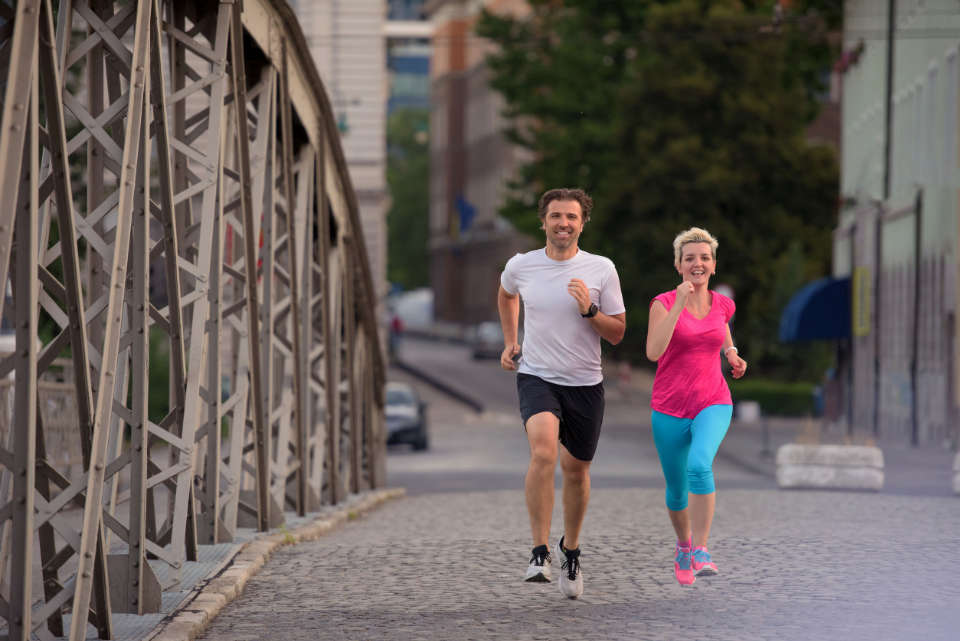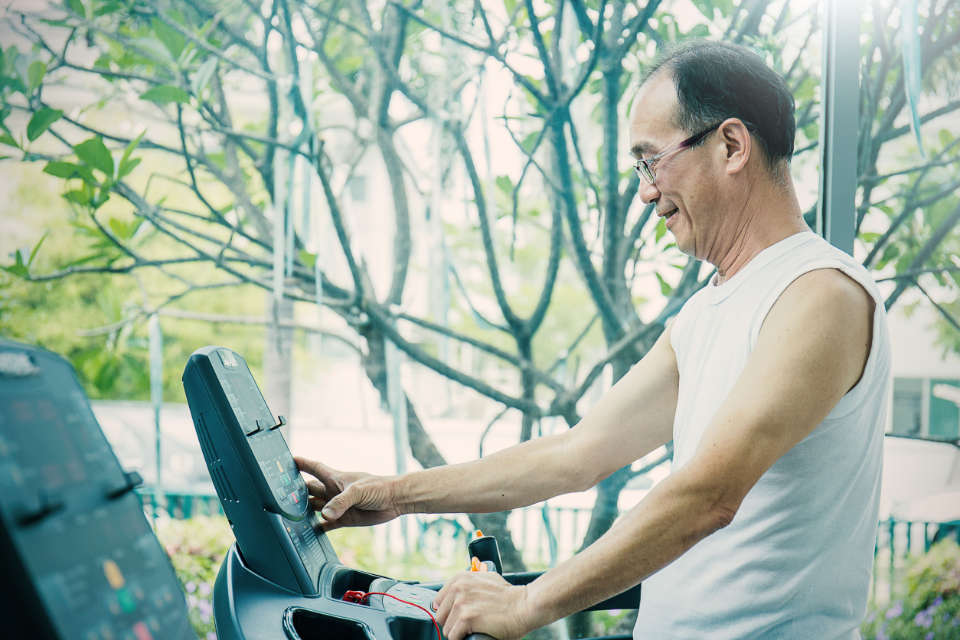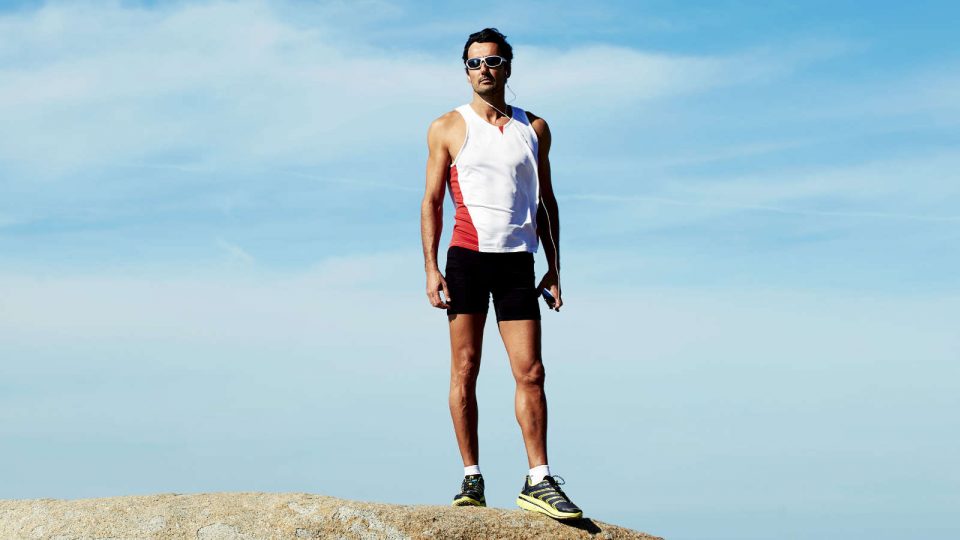Today’s runners should be of good cheer: Plenty of studies show that healthy eating and regular exercise keep men and women on their toes longer than those who define exercise as travelling from the couch to the ‘fridge.
As a rule, runners stay, feel and appear younger because they take their longevity seriously, so our investigation into post-40 running should make you feel positively youthful. Once you finish it, a brisk run makes the perfect addendum.
The bad news and the good news
A study undertaken by I Run Far.com editors concludes that while ultra-runners are getting younger—and the best male ultra-runners are younger than the best female ones—“Top finishers in the most competitive races are relatively older.”
You can’t turn back the clock, says Dr. Sarah Hunter of Milwaukee’s Marquette University, but you can understand changes your body experiences. “…your max heart rate declines by a beat per year,” she adds. Further muscle mass takes a hit in even perfectly-toned bodies, because neurons that feed muscles begin to die off at around the age of 40, too.
That stated, your body will remain a living replacement machine, regenerating cells, organs and undertaking repairs for decades to come, thanks to your willingness to stay fit and active. Further, focus on hyping your endurance since it will continue serving you well, even as your speed diminishes.

The body at 40
Trying to put every ageing runner into a single category isn’t just impossible but it’s a waste of time, so it’s important to regard the general changes in the body that every runner will experience eventually in the same way you viewed puberty. You and your friends matured at different rates and the same thing happens when people age.
According to NBC News, even the best-conditioned runner can’t stop the degeneration of the insulation that controls the body’s motor functions.
“It’s hard to be a world-class athlete after 40,” says University of California neurologist Dr. George Bartzokis commenting on “myelin” that’s responsible for signalling the body to move fast while running. But myelin deterioration doesn’t necessarily kick in on a runner’s 40th birthday. Everyone’s different.

Should you hang up your running shoes?
Hardly! Instead, compensate by keeping active and realising that scientists are finding that increased physical and mental activity can stimulate myelin repair. Every time you go for a run, myelin repair may be taking place, so count this among the blessings that buffer the ageing process.
In return for this potential boost in prowess, you must also do everything in your power to reduce stress, because cortisol produced by bodies under stress are the enemy, capable of destroying the process of myelin building as fast as you can repair it, says Dr. Bartzokis.
Keep stress down by adopting lifestyle changes that contribute to your well being.

Can you be categorised?
We hope so because there is a clever way of categorising post-40 runners so they understand what’s likely to happen to their bodies from ages 35 to 74. Remember that nothing’s set in stone but if you’re fascinated by the idea of looking into the future, check out the following:
- Young masters (ages 35 to 44) are urged to add extra recovery time and cross-training to their workout schedules, accept the changes taking place in the body and physical reactions to workouts and, our favourite, “Don’t collect personal worsts”!
- Middle masters (ages 45 to 55) are encouraged to choose softer surfaces on which to run, train more, focus on strength and flexibility, especially in areas like hip flexors and calves. Importantly, seek motivation and inspiration from peers and contemporaries rather than young Turks.
- Ageing masters (ages 56 to 64) will want to maintain performance levels requiring less effort, figure out your best recovery methods, come to terms with every year you have aged and appreciate every success as it comes because at this age, you’re pretty amazing.
- Senior masters (ages 65 to 74) are wise to engage in regular weight training, be doubly cautious about injuries when training, join a club open only to runners over the age of 40 and importantly, define success on your own terms.

Head over body
There’s a reason we mixed physical recommendations with mental ones! Competitive athletes can’t help but measure their performances against peers because the most dedicated runners not only seek personal bests to ascertain how they are progressing but it’s human nature to compare ourselves with others.
Dr. Margaret Paul writing for Huffington Post says the inclination to measure up to others can be seen as positive or negative. If a runner’s self-confidence is high, it’s healthy to want to get to the finish line before a worthy opponent.
But if that inclination is irrational—if a post-40 runner insists on measuring his performance against younger competitors, that’s a recipe for emotional disaster.
We urge post-40 runners to adopt those healthy recommendations. Stop collecting “personal worsts.” Refrain from comparing yourself to younger runners. Appreciate every success that comes your way and define that success on your own terms.
Live by this wisdom and you will not only keep running with confidence, but you’ll become a role model for your contemporaries, too!
Do you admire a post-40 runner because he or she has accepted the ageing process and not let it get in the way of their passion for the sport?





